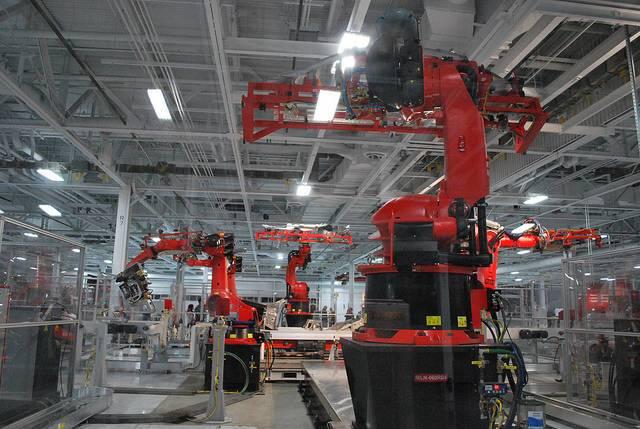
Despite never having made a profit in its 14 years, Tesla Motors recently surpassed Ford and then, briefly, General Motors in market value. Nevertheless, between its new solar products and a record quarter of automotive sales, the Silicon Valley-based automaker and its futurist co-founder, Elon Musk, are bullish on the company’s future.
To that end, Musk announced yesterday that Tesla will introduce three new all-electric vehicles in the coming months: a convertible modeled after its first car, the Roadster; a semi truck in September; and a pickup two years from now at the latest.
Musk alluded to these vehicles in “Part Deux” of the company’s master plan, released last summer, but now the timeframe for the rollout of these vehicles is specific. As for an electric bus, Musk offered no timetable for the vehicle he described last year as critical for future mobility.
Tesla churned through $970 million during last year’s final quarter, Bloomberg's Dana Hull reported on Thursday. But investors are still showing confidence in the company, as it raised $1.4 billion through a combined stock and debt offering in March.
Tesla’s move into the trucking sector could shake up the industry, particularly with respect to the development of autonomous driving technology. While the autonomous vehicle conversation often centers on passenger cars – and the legal fights between companies such as Uber and Google – startups including Starsky Robotics are striving to make autonomous trucks mainstream.
Trucking is the backbone of the American logistics industry, yet it faces plenty of struggles, including the difficulties companies have in recruiting drivers. The autonomous delivery of goods via trucks could end up becoming a larger and more profitable business than autonomous cars. Hence Tesla truly could become an integrated transportation company that could give the Big Three automakers a run for their money.
Wall Street was certainly impressed by Musk’s announcement. After a few days of declines, Tesla’s stock spiked almost 2.5 percent, almost hitting $307 a share before settling at a price of $304 when the markets closed Thursday afternoon.
Don’t count on the euphoria lasting for long. Many analysts are quick to point out that Tesla has a long history of over-promising and under-delivering. That pressure could become relentless this summer as both consumers and investors wait and see if the company can really ramp up production.
The upcoming arrival of the Model 3 -- now scheduled for this summer -- could either leave automobile industry analysts and electric car mavens enthused or further soured on the company. If Tesla’s much-anticipated Model 3 falls short of expectations or faces more delays, watch for investors to become nervous about the company’s long-term prospects yet again.
Then there is the cart-before-the-horse problem: Should Tesla make sure cars are rolling off its assembly line with a steady frequency before the company starts talking up trucks?
While self-driving trucks running off electricity sound revolutionary, that electric drivetrain needs to be perfected first. And Tesla will not be alone in this market: Mercedes-Benz, which has long boasted a thriving truck business, is developing its own electric truck and plans to test it on German roads this year. The Chinese automobile manufacturer BYD is also promising a new line of electric trucks and is promoting them aggressively here in the U.S.
With concerns over trucking’s impact on traffic, air quality and the environment, this sector will soon experience rapid change unthinkable just a few years ago -- no matter who occupies the White House.
Tesla has proven that it is a worthy upstart the world’s leading automakers are foolish to ignore. But sluggish production numbers could start to chip away at the company’s Teflon-like reputation, and prevent it from becoming even a minor player in the trucking sector.
Image credit: Patrick Herbert/Flickr

Leon Kaye has written for 3p since 2010 and become executive editor in 2018. His previous work includes writing for the Guardian as well as other online and print publications. In addition, he's worked in sales executive roles within technology and financial research companies, as well as for a public relations firm, for which he consulted with one of the globe’s leading sustainability initiatives. Currently living in Central California, he’s traveled to 70-plus countries and has lived and worked in South Korea, the United Arab Emirates and Uruguay.
Leon’s an alum of Fresno State, the University of Maryland, Baltimore County and the University of Southern California's Marshall Business School. He enjoys traveling abroad as well as exploring California’s Central Coast and the Sierra Nevadas.














